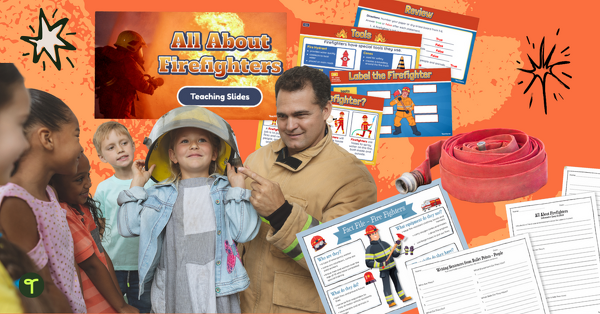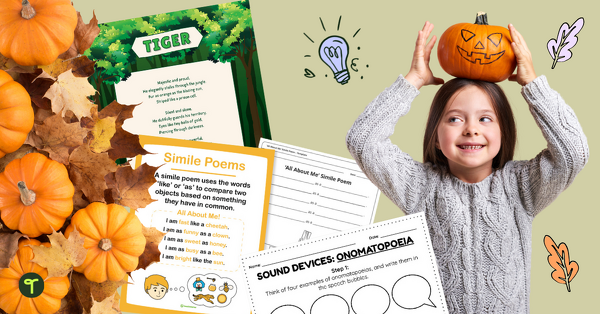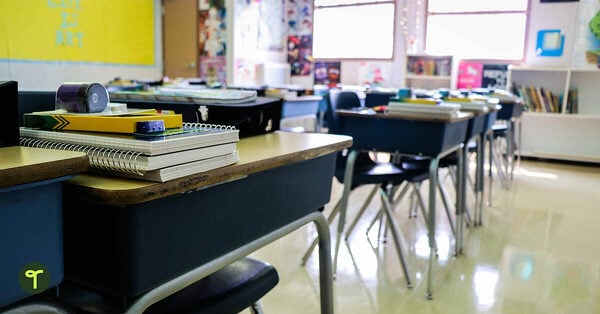It’s tax season, which means teachers are pulling out classroom supply receipts and trying to figure out what they can write off on taxes in 2024. Are you trying to make sense of the IRS educator expense deduction? Not sure what tax deductions are OK to take if you’re a teacher?
We’ve got you!
The teachers on the Teach Starter team have compiled the latest updates to the teacher deductions allowed by the IRS, along with some tips for teachers on maximizing the 2024 educator expense credit and a teacher tax deduction list. Plus, we’ve answered some of our community’s most-asked questions about filing taxes when you work in education!
Read on to find out how much you can take off your taxes and what items qualify for deductions for educators.
How Much Is the Educator Expense Deduction in 2024?
The Internal Revenue Service (IRS) gets to decide just how much teachers can deduct from income taxes. That allowance is called the educator expense credit, and it’s relatively new in American history.
In fact, it’s only since 2002 that American teachers have been able to deduct some of the many, many classroom expenses they fund with their own money, thanks to legislation passed by Congress in the Job Creation and Worker Assistance Act of 2002. The act created a temporary $250 federal income tax deduction for educators which was later made permanent.
So, how much is the educator expense credit in 2024?
This year, an individual teacher is allowed to write off a total of $300 on their federal income taxes using the educator expense deduction. This is the same figure that was allowed in 2023 when the IRS officially increased the credit by $50 from the original figure set way back in 2002!
What Can Teachers Write Off On Taxes in 2024?
OK, so you can write off $300 in expenses on your federal income taxes if you’re an educator … sort of. The IRS has a list of rules and regulations that you’ll need to follow when you’re filling out those tax forms.
First and foremost — the $300 write-off for educators only applies to spending that wasn’t reimbursed. After all, if you got a check back from your school district or a grant to cover the costs, it technically wasn’t out-of-pocket spending, and that means it doesn’t qualify as an income tax reduction.
Here’s what else you need to keep in mind:
Educators who can take the $300 tax credit include
- Those who work at least 900 hours in the year at a school
- Those who work as a teacher, principal, aide, instructor or counselor
- Those who teach any grade from kindergarten through 12
- Those who work in a school providing elementary or secondary education (as determined by state law)
Teacher Write-Offs List
Yes, you can write off a Teach Starter subscription — hey, we’ve had the question, so we figured we’d answer right away. Because a Teach Starter subscription unlocks thousands of teaching resources, games and digital tools, it qualifies under the IRS stipulation that teachers can write off “supplementary materials.”
Other items teachers can apply toward their $300 deduction include:
- Professional development
- Books for the classroom
- Supplies from pencils to manipulatives
- Computer equipment including related software and services
- Athletic supplies — but only those used for health and physical education
Can I Write Off COVID-19 Classroom Expenses?
There are still teachers making COVID-related purchases such as masks, and the IRS is still listening to you. The answer is yes, with a catch. Teachers can apply some of their COVID-19 classroom expenses to their income tax write-offs in 2024, so long as they were not reimbursed by the school district.
That can apply to masks mandated by your district, hand sanitizer for the classroom, the cleaning supplies you used to keep germs at bay and even air purifiers you purchased for your classroom.
Other pandemic-related items that can be applied to your $300 educator expense tax deduction for 2024 include:
- Hand soap
- Disposable gloves
- Tape, paint or chalk to guide social distancing
- Physical barriers, such as clear plexiglass
What If My Spouse and I Are Both Teachers?
If you are married to another teacher, your teacher deduction options go up — sort of. Each of you gets to claim your $300, for a total $600 income tax deduction, if you file a joint tax return.
Are There Any Other Teacher Tax Deductions?
Your accountant is your best bet for personal deductions beyond the standard teacher deductions — after all, you may have a side gig we don’t know about!
But if you’re a teacher who has gone back to school to pursue additional education, be aware that there are deductions for tuition that may exceed that $300 limit, so you might be better off taking those deductions elsewhere.
If you live in any of the states that offer educator deductions, you may also be able to find some tax relief on your state income taxes. Currently, the states that offer teacher deductions are:
- Alabama
- Arkansas
- California
- Hawaii
- Minnesota
- New York
- Pennsylvania
How Much Do Teachers Spend Out of Pocket?
We’ve talked a lot about tax deductions for teachers, so it’s worth noting that we all know that teachers spend a lot of their own money on their classes — from buying basic supplies like pencils to bulletin board decorations to student gifts, and well … you get the picture!
Are you wondering if everyone is opening their wallets to buy for their classrooms?
Well, yes. It turns out nearly every teacher has spent their own money on their classroom and students. One 2021 survey found a whopping 95 percent of teachers said their classroom budget wasn’t enough to cover everything they needed, so they were supplementing with their own funds.
As for how much teachers spend out of pocket, that survey of teacher spending from Adopt a Classroom found the average spending was $750 a year, with purchases for COVID safety regulations increasing the load for many teachers. COVID purchases alone cost an average of $160 per teacher in the 2020-21 school year.
In years past, policy experts at the Economic Policy Institute have done similar reviews of teacher spending, and their analysis indicates nine in 10 teachers are not reimbursed for the things they buy. And if you’re not being reimbursed, that’s where keeping track of your spending could become useful come tax time.
Disclaimer: This content was created for informational purposes only and is not intended to provide — nor should it be relied on for — tax, legal or accounting advice. For more information or to determine which deductions you might qualify for, talk to an accountant or review the IRS Educator Exemption.









Comments